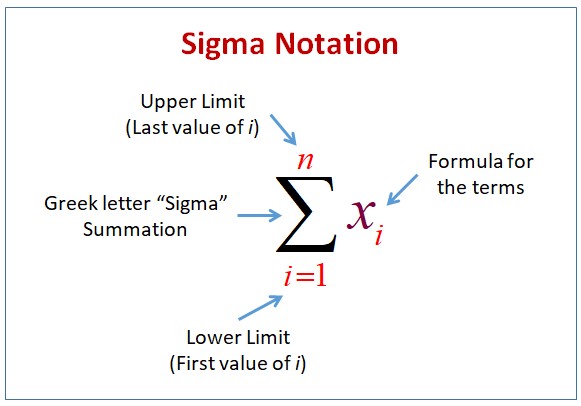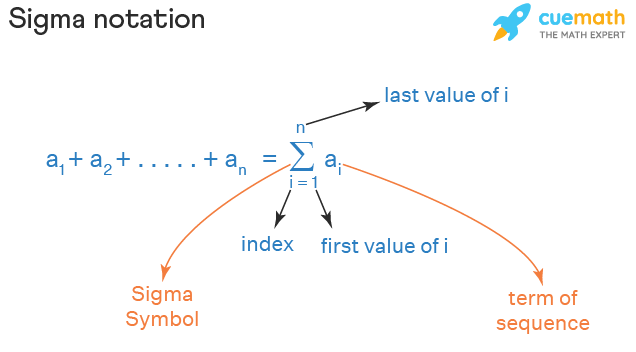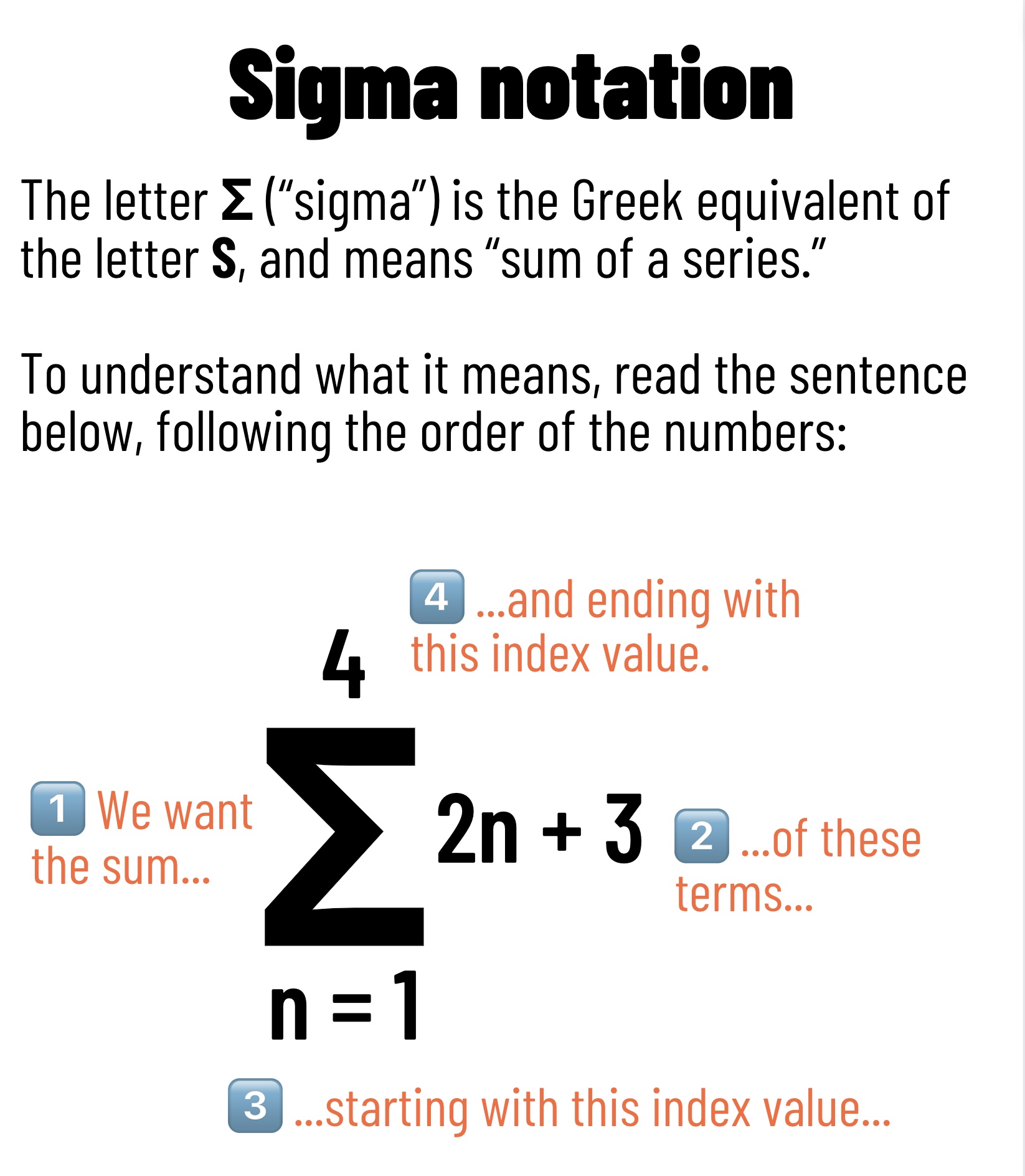What Does Sigma Mean - Exploring A Modern Idea
Have you ever heard someone talk about a "sigma" and wondered just what in the world they meant? It's a word that pops up a lot these days, especially when people are chatting online or in school hallways, and it's got a few different ideas wrapped up in it. For a lot of folks, it’s a way to describe a person who is, well, pretty neat, someone who doesn't just go along with what everyone else is doing, but still manages to be well-liked and achieve good things. So, it's almost like a secret handshake for a certain kind of personality.
This single word, "sigma," carries quite a bit of weight, you know, across different conversations. You might hear it when people are talking about a letter from an old alphabet, or when they are adding up numbers in a math class, or even when they are describing a type of person in a social setting. It’s actually pretty interesting how one term can have so many different uses, and how it's come to mean what it does in various places. Apparently, its journey from a symbol to a social label is quite a path.
So, we're going to take a closer look at what this word means, from its earliest known uses to how it shows up in conversations today. We will explore how it changed from something found in books of ancient symbols to a term used by young people to describe a certain kind of person. We'll also consider how it fits into the world of math and even how it’s used to talk about people on the internet, giving us a clearer picture of what does sigma mean in all its forms.
Table of Contents
- What Does Sigma Mean in Everyday Talk?
- The Greek Roots of What Does Sigma Mean
- The "Sigma Male" - What Does Sigma Mean on the Internet?
- What Does Sigma Mean in Numbers and Science?
- The Bigger Picture - What Does Sigma Mean Now?
What Does Sigma Mean in Everyday Talk?
When you hear someone casually mention "sigma" in conversation, especially among younger groups, they are usually talking about a person who is seen as someone rather cool, someone who follows their own set of guidelines. This individual might be someone who pushes back against common expectations and likes to do things their own way, yet they are also quite liked by others and tend to achieve what they set out to do. They possess a spirit of going their own way, and are often perceived as a person who can stand on their own two feet, which is pretty interesting, you know. They are the kind of person who doesn't necessarily seek approval from a crowd, but somehow still gathers a good deal of admiration.
This common use of the word, what does sigma mean in the context of everyday talk, often points to someone who is independent in their thinking and actions. They are not necessarily trying to be difficult, but they simply have a way of doing things that is unique to them. They might not join every social group or follow every trend, yet their own path seems to lead to a place where they are seen as a person of influence, or at least someone people look up to. It's like they have a quiet confidence that draws others in, even if they aren't actively trying to be the center of attention. This way of being, frankly, is something many people find quite appealing.
In this sense, a person described as "sigma" is someone who is a bit of a free spirit, someone who doesn't feel the need to conform to what everyone else is doing. They might be the person who chooses a different hobby, or who thinks about things in a slightly different way than the general group. Nevertheless, their approach often brings them a good measure of good outcomes and a certain level of being well-regarded by their peers. This informal use of the word, in fact, has become quite common in places where young people gather and chat, shaping how they talk about different types of personalities.
How Did "Sigma" Become a Popular Idea?
The journey of what does sigma mean as a popular idea, especially in casual conversation, really picked up speed in various online communities. It's in these digital spaces, where people share ideas and create new terms, that "sigma" started to take on its current meaning as a description for a person. This kind of slang, you know, tends to spread quickly among younger people who spend a lot of their time on the internet. It became a way to classify a certain kind of individual, a type of person who stands out in a particular way.
According to sources like "Know Your Meme," which tracks how internet phrases and jokes come about, the term "sigma" refers to a supposed classification of individuals. This classification, you see, describes someone who operates independently and often steps outside the usual ways people organize themselves in social groups. It’s a way of saying that this person doesn't necessarily fit into the typical boxes, but that's precisely what makes them stand out. This idea, in some respects, gained traction because it offered a new way to think about personal style and how one relates to others.
The idea of what does sigma mean has also become connected with ideas about what it means to be a man in some circles. It's often linked to concepts of strength and self-reliance, painting a picture of a man who is strong in his own right and doesn't need to follow anyone else's lead. This connection to ideas of masculinity has helped the term spread, particularly among younger men looking for ways to define themselves outside of older, more traditional ideas. So, it's quite a bit more than just a random word; it actually carries some significant cultural weight for many.
The Greek Roots of What Does Sigma Mean
Before it became a piece of modern slang, what does sigma mean had a much older, more formal background. Some people know "sigma" as the eighteenth letter of the Greek alphabet. This alphabet, of course, has been around for a very long time and has given us many letters that we use in our own writing system, and also many symbols used in different fields of study. So, its original home was in ancient language, a symbol with a long history of representing sounds and ideas in written form. It's actually quite a journey for a letter to go from something so old to something so new in popular speech.
This connection to the Greek alphabet shows how words and symbols can change their purpose over time. A letter that was once just a part of writing a language can pick up entirely new meanings as cultures and ways of speaking evolve. The word "sigma" truly stands as a complex term that has moved through different eras, starting from its very old Greek origins and making its way into modern internet culture. It’s a pretty good example of how language itself is always moving and changing, picking up new shades of meaning as people use it in different ways. This movement, you know, is what keeps language alive and fresh.
The fact that the same word can refer to a letter from an ancient alphabet and also a modern social type is, in a way, pretty fascinating. It highlights how terms can be borrowed and reshaped to fit new situations and new ways of thinking. The very sound and shape of the word might stay the same, but the ideas it brings to mind can be completely different depending on who is saying it and in what situation. This kind of evolution is a common thing in language, where old forms get new uses, giving us a richer vocabulary to talk about our experiences. It’s almost like the word itself has a story to tell about how it has been used through the ages.
What Does Sigma Mean Beyond Teen Slang?
Moving beyond its use as a piece of teen slang, what does sigma mean also has a more formal, academic definition. A psychotherapist, who works with people to help them with their thoughts and feelings, and who also founded a place called Uncover Mental Health Counseling, explains "sigma" as a person who operates independently. This kind of person, she says, often steps outside the usual ways people organize themselves in society. They don't necessarily follow the crowd or adhere to common social structures, preferring to forge their own path. This definition gives the term a bit more weight, you know, suggesting a deeper psychological aspect to this type of individual.
This explanation helps us see that the idea of a "sigma" person isn't just about being "cool" in a superficial way. It points to a deeper characteristic of someone who genuinely prefers to be self-reliant and not bound by typical social expectations. They might not seek out leadership roles, nor do they necessarily want to be followers. Instead, they seem to thrive on making their own choices and living by their own internal compass. This independence, in fact, is a core part of what defines them, making them a distinct type of individual in social settings.
So, when we consider what does sigma mean from this perspective, it becomes clear that it describes a person who truly values their own freedom and autonomy. They might participate in social groups, but they do so on their own terms, not feeling obligated to fit into a particular role or follow specific rules just because everyone else does. This capacity for self-direction and for not needing external validation is, in some respects, a very strong personal trait. It’s a way of being that sets them apart from those who might seek comfort in fitting in with established social patterns.
The "Sigma Male" - What Does Sigma Mean on the Internet?
In the rather interesting world of internet slang, what does sigma mean often refers to something called the "sigma male." This idea describes a somewhat mysterious lone wolf type of person, someone who is supposedly able to go beyond the usual ways people are ranked in social groups. This individual is pictured as someone who doesn't quite fit into the common ideas of who is at the top or bottom of a social ladder. They are, you know, seen as existing outside of these traditional structures, making their own way without needing to be part of a defined social order.
The concept of the "sigma male" suggests a person who is an independent loner, someone who has no real interest in fitting into established groups or social circles. They are not necessarily anti-social, but they simply do not feel the need to be part of a group to feel complete or successful. This kind of person is often portrayed as being very self-sufficient, someone who can handle things on their own without relying on others. It’s a very particular kind of personal image that has gained quite a bit of attention in certain online communities, shaping how people talk about personality types.
The term "sigma" in this context is slang that points to a type of man who exists outside the usual ways men are organized in social settings. Instead of striving for dominance or seeking to lead a group, this person is content to operate on their own. They might be quite capable and achieve many things, but they do so without needing to be recognized within a traditional hierarchy. This idea, you know, presents a different kind of strong individual, one whose strength comes from their self-reliance rather than their position within a group. It's a way of looking at personal power that is quite distinct from older ideas.
Is "Sigma Male" Like an "Alpha Male"?
When people talk about the "sigma male," they often compare it to the idea of an "alpha male," but with some key differences. You might hear someone say, "Imagine an alpha male but with less," when trying to explain what does sigma mean in this context. An "alpha male" is typically seen as someone who is a leader, someone who is dominant and often at the top of a social group, someone who is very visible and takes charge. The "sigma male," on the other hand, shares some of the strengths of an "alpha," like being capable and confident, but without the desire to lead or be the center of attention.
The main difference, then, is in their approach to social structure. An "alpha" might thrive in a group setting, enjoying the position of being in charge, whereas a "sigma" prefers to operate independently, often stepping outside those group dynamics entirely. They are not trying to be the leader of a pack; they are simply not part of a pack at all, or at least not in the traditional sense. This independent nature is a very defining characteristic, you know, setting them apart from other personality types often discussed in these online conversations. It's a subtle but important distinction in how they interact with the world around them.
So, while both "alpha" and "sigma" individuals might be seen as strong or successful, their ways of achieving these things and relating to others are quite different. The "sigma" doesn't seek to control or influence a group in the same way an "alpha" might; instead, they simply do their own thing, without needing to fit into a particular mold. This lack of interest in fitting in, or in being part of a fixed social order, is what truly sets the "sigma male" apart. It's a unique take on what it means to be a person of substance, someone who can stand on their own.
What Does Sigma Mean in Numbers and Science?
Beyond its social meanings, what does sigma mean also has a very specific and long-standing use in the worlds of mathematics and statistics. In these fields, "sigma" is represented by a particular symbol, often written as a Greek letter, like a fancy "E" on its side (σ). This symbol is used to show something called summation. Summation is just a formal way of saying that you are adding up a series of numbers or values. It’s a very common shorthand that helps people write out long addition problems in a much shorter, neater way.
For example, if you have a list of numbers, say 2, 4, 6, and 8, and you want to show that you're adding them all together, you would use the sigma symbol. It’s a way to tell someone, "Hey, take all these numbers and find their total." This makes complex calculations much easier to write down and to understand, especially when you are dealing with many, many numbers. So, in math, it’s a tool for showing a specific kind of operation, a way to collect and combine numerical values. It’s a very practical use for an ancient symbol, really.
The use of "sigma" in math and statistics shows how a single symbol can have a very precise and important job in a technical field. It’s not about personality types or social standing here; it’s purely about conveying a mathematical instruction. This highlights how the word, and its symbol, can exist in completely different contexts, each with its own clear definition and purpose. So, when you see that symbol in a textbook or a scientific paper, you know it's telling you to add things up, which is a very different idea from someone who marches to the beat of their own drum.

Sigma in Statistical Analysis: What You Need to Know - isixsigma.com

Sigma Notation - Sigma Symbol Math | Summation Notation

Sigma Math